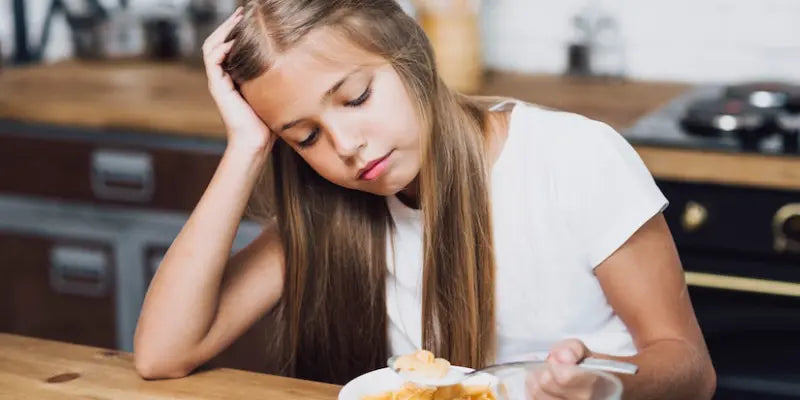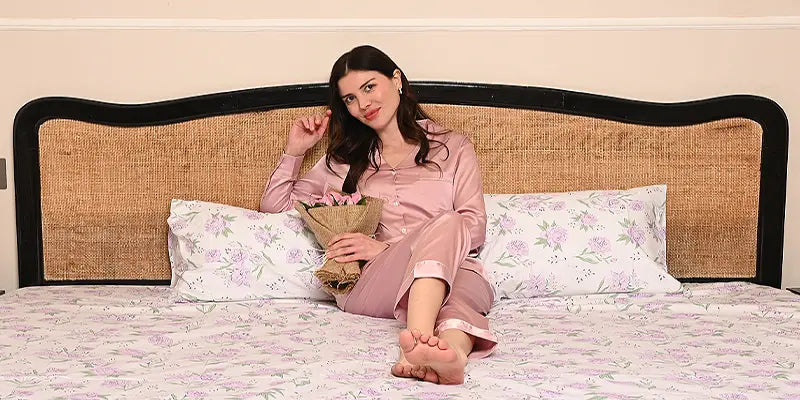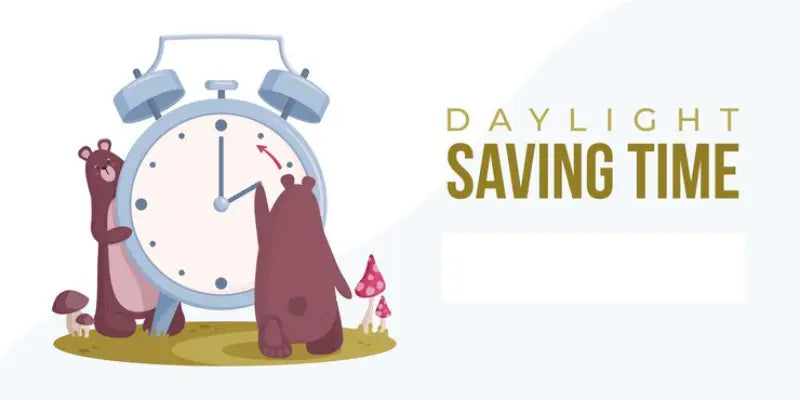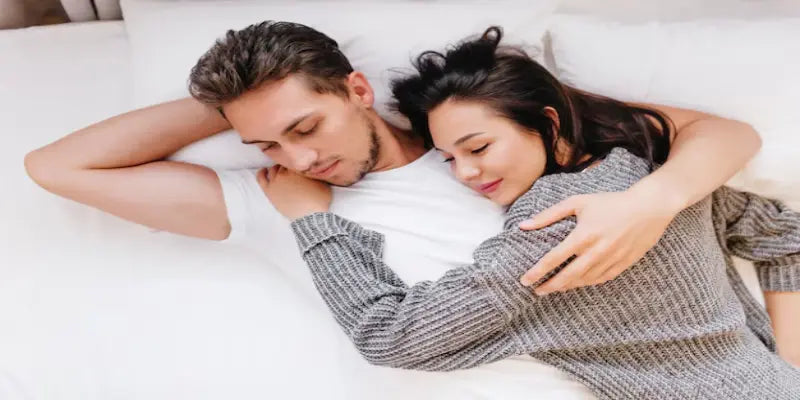
Why Do I Get Sleepy After a Meal?
You had a full plate of Rajma Chawal with sweet lassi at lunch and now you are wondering: Food is supposed to give us energy but why do i feel sleepy after a satisfying meal? Most of us experience post-meal drowsiness and this is referred to as ”food coma”. Tiredness after eating could simply indicate that your body is working extra hard to digest your food. However, it might also mean that something is wrong with your glucose (sugar) and insulin response, or that an underlying condition is the cause of the problem.
In this blog, we’ll understand what causes this phenomenon, reasons behind why we feel sleepy after lunch and how you can minimize the effect of post meal drowsiness.
What is Postprandial Sleepiness (Somnolence)?
Postprandial sleepiness, also known as "food coma," is the feeling of tiredness that some people experience after eating a meal.
You may experience the following symptoms:
- Sleepiness
- Lethargy
- Physical exhaustion
- Low energy levels
- Poor concentration
This happens because your body is working hard to digest the food you just ate, which can cause a drop in energy levels and make you feel sleepy. It's common after big meals, especially those rich in carbohydrates or fats.
Reasons behind Why Do I Feel Sleepy After Eating
These are the reasons behind why do we feel sleeping after eating:
Digestive Process
Our body is just like a factory, we give it food as raw material and it makes the final product in the form of energy to us. This whole process inside the body needs a lot of work. When we eat a meal, our body directs a significant amount of blood flow to our digestive system so that it can break down the food and can absorb nutrients.
As the blood flow increases in the digestive system, it reduces the blood flow in other parts of the body, including our brain. As there is less blood flow and oxygen to the brain, it will make us feeling sleepy all the time and tired.
Hormonal Changes
When we eat something, our body realizes various hormones, insulin is one such hormone which helps in regulating blood sugar levels. If you have consumed a meal full of carbohydrates, your body will produce insulin to help in the absorption of glucose into your cells. This will result in a temporary drop in your blood sugar levels, known as reactive hypoglycemia. Low blood sugar levels can cause fatigue and sleepiness.
Neurotransmitters
Different food items have different effects on our body. Foods that are rich in amino acids affect the production of serotonin and tryptophan in our brain. Serotonin, also known as the "feel-good" hormone, regulates mood and sleep. Tryptophan, an amino acid found in protein-rich meals, is a precursor to serotonin. Consuming tryptophan-rich foods can boost serotonin levels, resulting in feelings of relaxation and drowsiness.
Foods that are High in Tryptophan Include:
- Chicken
- Egg whites
- Fish
- Milk
- Sunflower seeds
- Peanuts
- Pumpkin seeds
- Sesame seeds
- Soy beans
- Turkey
4. Meal Composition
We Indians love eating and we eat in excess. Large meals, especially ones high in carbohydrates and fats, require more energy to digest, which can make you feel drowsy. What and how much you eat determines whether or not you will feel sleepy afterwards.
There are certain foods such as biryani, pasta, bread, dairy products, turkey and other food items that are rich in protein and carbohydrates can make us feel more sleepy as they will have an effect on neurotransmitters and our blood sugar levels.
5. The Parasympathetic Nervous System
After eating, the parasympathetic nerve system, also known as the "rest and digest" system, becomes more active. When the parasympathetic nervous system (PSNS) is activated, it slows our heart rate and breathing, decreases blood pressure, and helps in digestion. Our bodies reach a state of relaxation that helps with recovery. This makes you feel more calm and sleeping after eating.
Which Foods Can Make Us Sleepy?
Certain foods can make you feel more tired because they affect your body's energy levels. Such foods include:
High-Carb Foods
Foods that are high in carbohydrates can help increase the production of serotonin, a hormone that promotes relaxation and sleep. When you eat carbs, they can help tryptophan (an amino acid) enter the brain more easily, where it gets converted into serotonin and melatonin, the sleep hormones.
Examples: Oats, bread, pasta, rice, and potatoes.
High-Fat Foods
Certain high-fat foods, especially those containing healthy fats like omega-3 fatty acids, can support sleep by promoting the production of melatonin.
Examples: Walnuts, almonds, fatty fish (like salmon), and avocado.
High-Protein Foods with Tryptophan
Foods high in protein, particularly those that contain the amino acid tryptophan, are great for sleep. Tryptophan is a building block of serotonin and melatonin.
Examples: Turkey, chicken, eggs, dairy, and tofu.
Foods Rich in Magnesium
Magnesium is a mineral that helps relax muscles and calm the nervous system, making it easier to fall asleep.
Examples: Leafy greens (like spinach), nuts (almonds, cashews), seeds (pumpkin seeds), and bananas.
Foods with Melatonin
Melatonin is a hormone that directly regulates your sleep-wake cycle. Some foods naturally contain melatonin, which can help you fall asleep faster.
Examples: Cherries (especially tart cherries), kiwi, and grapes.
How Can I Stop Feeling Sleepy After Eating?
Nobody enjoys feeling sleepy after lunch, especially at work. We want to be active and concentrated, and the constant desire to take a little power nap is very frustrating at that point. You can follow these tips to reduce the impact of a heavy or carbohydrate-rich meal and be more attentive after a meal.
- Opt for Balanced Meals: Try to eat food that is balanced in protein, carbohydrates and healthy fats to balance the blood sugar levels. Avoiding carbohydrate and protein-rich meals will help you avoid rises in blood sugar (causing extreme fluctuations in energy levels) while also maintaining adenosine levels.
- Moderate Portion Sizes: We Indians often overeat if our favorite food is on the table. Avoid overeating and try to control the food portion according to your body needs. Try to eat smaller, more frequent meals throughout the day, doing so can help prevent excessive post-meal drowsiness.
- Stay Hydrated: Make sure you drink enough water throughout the day. Dehydration can make you feel tired and exhausted. Experts recommend that men drink 15.5 cups (3.7 liters) of water per day and women drink 11.5 cups (2.7 liters). However, environmental factors such as temperature and other health problems can influence your water requirements.
- Move Around: Try to take a short walk or do some light exercise after meals. This will help to stimulate blood flow and promote better digestion. The effect of exercise on sleep is widely known. However, you should pay attention when you exercise. For some people, exercising too close to bedtime makes it difficult to falling asleep after eating.
- Get more nighttime sleep: Those who don’t get enough sleep at night are more likely to feel sleepy during the day. Try to get enough quality sleep at night so that you’ll feel active throughout the day.
When Should I Talk to a Doctor?
It's normal to feel a little sleepy after eating, but if you feel extremely tired after having every meal, it could be a sign of an underlying health issue. A doctor can help figure out if there’s a medical reason for your tiredness, like food intolerances, diabetes, or other health concerns.
Conclusion
Feeling sleepy after meals is very common, most of us experience it frequently and caused by a number of factors such as the digestive process, hormonal changes, neurotransmitter activity, food composition, and the parasympathetic nervous system. Understanding these underlying principles and following good eating habits can help you avoid post-meal drowsiness and keep your energy levels stable throughout the day.
If you are someone who can't fall asleep at night and always wakes up tired, you can consider investing in a memory foam pillow. Memory foam pillows are intended to give maximum support and comfort, promote a good body posture and help with sleep related problems. Memory foam pillows are incredibly supportive and can reduce pressure on your neck. During sleep, the material conforms to the shape of your head and neck. They work particularly well when combined with a memory foam mattress.








